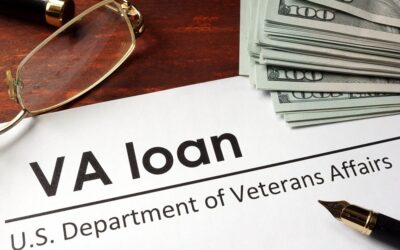Most common VA loan questions center on eligibility, the Certificate of Eligibility (COE), down payments, closing costs, credit, property rules, how much you can borrow, and when refinancing makes sense. Below you’ll find plain-English answers, plus a practical, step-by-step approach for comparing lenders and choosing the most affordable structure for your timeline and goals.
Quick Facts
- No down payment: VA purchases often require $0 down; there’s no monthly PMI, but a one-time funding fee usually applies unless you qualify for an exemption.
- Primary residence rule: VA loans are for homes you’ll occupy as your primary residence; eligible property types must meet health-and-safety standards.
- Refi paths: You can use a streamlined VA IRRRL to lower rate/payment or VA cash-out when you need equity access and full underwriting.
Mini FAQ
Who qualifies for a VA loan?
Generally, eligible Veterans, active-duty service members, and certain surviving spouses qualify based on service history and character of service. A lender confirms this with your Certificate of Eligibility (COE).
Do VA loans require a down payment?
Often no. Many borrowers purchase with $0 down. You’ll typically pay a one-time funding fee unless exempt, and you’ll budget for standard closing costs and prepaids.
Can I use a VA loan for a vacation home?
No. VA loans are designed for primary residences. You’ll certify occupancy and the property must meet VA standards for safety, soundness, and sanitation.
Key Takeaways
- Eligibility & COE: Confirm service-based eligibility and obtain a COE early so lenders can quote accurately and clear overlays faster.
- Costs: No monthly PMI; a one-time funding fee usually applies unless exempt. Budget standard closing costs and prepaids.
- Property rules: Primary residence only; eligible homes must meet VA health-and-safety standards and, for condos, project approval rules.
- Loan amount: Lenders size approvals using income, debts, and entitlement math; strong residual income and clean documentation help.
- Refinancing: Use IRRRL for rate/payment efficiency; use cash-out for equity access when the total-cost math fits your plan and budget.
- Comparison method: Standardize quotes, compare APR and cash-to-close, and choose the lowest total cost for your realistic time horizon.
Who is eligible for a VA loan?
Eligible Veterans, active-duty service members, and certain surviving spouses may qualify. Eligibility depends on service history and character of service, verified through a Certificate of Eligibility that your lender uses to confirm program access (VA eligibility overview).
- Service-based qualification: Periods and types of service determine eligibility. Your lender will review documentation and confirm that your record meets service and character requirements for a government guarantee.
- Spouse eligibility cases: Certain unremarried surviving spouses can qualify. Precise documentation and timelines are required to establish entitlement and ensure lenders can submit a clean, verifiable file.
- Entitlement and usage: Entitlement is the VA guaranty on your loan. It can be fully available, partially used, or restored after payoff or sale, affecting zero-down capacity and approval amounts.
- Collect service records. Gather DD-214 (or statement of service if on active duty) and any prior VA loan details to speed COE retrieval and entitlement checks.
- Confirm eligibility early. Ask your lender to pull your COE during prequalification to avoid surprises and enable accurate quotes, timelines, and conditions.
- Document exemptions. If you may be exempt from the funding fee, prepare ratings or award letters so the lender can reflect the correct cost structure on disclosures.
Eligibility opens the door; strong documentation keeps the process smooth and helps lenders deliver reliable quotes aligned with program rules.
What is a Certificate of Eligibility (COE) and how do you get it?
The COE proves VA eligibility to your lender. You can obtain a COE online or through your lender, who retrieves it electronically and ties it to your application for accurate entitlement and cost calculations (Check COE status).
- Why it matters: The COE confirms you meet service standards and indicates funding-fee status or exemption. Without it, lenders cannot finalize quotes or issue accurate disclosures.
- Fast retrieval: Many lenders can pull your COE instantly. If records are incomplete, they will advise which documents to upload so benefits can be verified before underwriting.
- Clean quotes: A valid COE helps ensure funding fee and entitlement math appear correctly on your Loan Estimate and Closing Disclosure.
- Start online. Use the VA portal or authorize your lender to request your COE electronically for the quickest confirmation.
- Provide service proof. If requested, submit DD-214 or a statement of service so entitlement appears correctly for preapproval and pricing engines.
- Verify details. Review the COE with your loan officer to confirm status and ensure disclosures reflect your exemption or funding-fee category.
Pulling the COE early reduces friction, aligns costs, and gives your lender the data needed to structure a precise approval.
Do VA loans require a down payment and what about closing costs?
Many VA purchases require $0 down; closing costs still apply. There is no monthly PMI, but most borrowers pay a one-time funding fee unless exempt. Sellers can contribute to costs within program rules (VA funding fee and closing costs).
- No monthly PMI: VA eliminates monthly mortgage insurance even at zero down, lowering the payment relative to low-down conventional options.
- Funding fee basics: Most borrowers pay a single funding fee set by statute. Exempt borrowers will not owe it, materially improving total cost and cash to close.
- Seller contributions: Sellers can pay allowable costs and certain concessions within limits. Your lender and agent will structure credits to satisfy program rules.
- Budget the prepaids. Taxes, insurance, and per-diem interest are not “fees” but are due at closing; include them to prevent shortfalls.
- Use credits wisely. If a seller offers credits, prioritize rate buydowns or unavoidable third-party charges to reduce either monthly cost or cash to close.
- Ask about exemptions. If you believe you are exempt from the funding fee, provide documentation early so disclosures are correct.
Zero down reduces upfront cash needs; careful credit use and accurate fee modeling keep the total payment predictable and sustainable.
Is there a minimum credit score for VA loans?
The VA does not set a hard minimum; lenders set score requirements. Many lenders use 620 as a common floor, but pricing improves at higher tiers. VA’s guaranty can still keep quotes competitive at mid-tier scores when documentation is strong.
- Capacity and history: Lenders evaluate DTI, payment history, and overall profile, not just a three-digit number, when deciding approvals and pricing.
- Score strategy: Lower revolving utilization, a clean on-time history, and fewer recent inquiries can move you into a better tier.
- Manual underwriting: Some lenders can manually underwrite borderline files, weighing reserves, residual income, and job tenure when automated findings are thin.
- Refresh reports. Correct errors and time payments so updated balances post before credit is pulled.
- Trim utilization. Paying revolving balances before statement close can lift tiers and lower minimums that affect back-end DTI and pricing.
- Avoid new debt. New accounts add payments and inquiries that can reduce best-tier pricing during the lock window.
A deliberate credit tune-up often saves more than chasing a marginally lower rate because it can unlock better pricing and cleaner approvals.
How much can I borrow and how do entitlement and loan limits work?
Approvals depend on income, debts, property, and entitlement math. With full entitlement, zero-down amounts are not capped by county limits; with partial entitlement, conforming limits shape how much you can borrow before a down payment is required (VA loan limits & entitlement).
- Full vs partial entitlement: If no prior VA loan is outstanding and entitlement is not tied up, zero-down capacity is broad; otherwise, remaining guaranty interacts with conforming limits.
- Income and debts: Lenders evaluate back-end DTI and, for VA, residual income by region and household size to ensure your budget supports the payment.
- Property and pricing: Appraised value, property type, and pricing structure also affect approval amounts and cash to close.
- Ask for entitlement math. Have your lender compute remaining guaranty and zero-down potential; decide whether a small down payment improves terms.
- Model scenarios. Run a base and “what-if” rate so your target price still works if markets move before locking.
- Protect reserves. Keep a cushion for escrow changes and maintenance; strong residual income can support approvals near a DTI boundary.
Entitlement sets the framework, but your file strength and property specifics ultimately determine a sustainable approval amount and payment.
Which properties qualify—and what standards must the home meet?
Eligible homes include many single-family, condo, and manufactured properties. The home must meet health-and-safety standards, and condo projects require VA approval. Appraisers verify Minimum Property Requirements for safe, sound, sanitary housing (VA MPRs – Handbook Ch. 12).
- Habitability baseline: Appraisers check essential systems, roof life, sanitation, and access. While not a substitute for a full inspection, it ensures program standards are met.
- Condo approvals: For condos, the association and project must meet VA criteria. Your lender can confirm project status and advise on documentation.
- Manufactured homes: Eligibility varies by foundation, title, and local rules. Lenders will explain appraisal and collateral expectations when standards are met.
- Order inspections early. A professional inspection identifies issues outside MPRs that still matter for budget and safety.
- Plan repairs. If the appraisal lists conditions, coordinate licensed fixes, photos, and invoices so the appraiser can clear them quickly.
- Verify condo status. Ask your lender to check project approval before making tight closing promises in condo contracts.
Meeting MPRs protects you and the program, while a full inspection protects your budget from surprises that MPRs do not address.
Can I use a VA loan for a second home or investment property?
No—VA loans are for primary residences. You will certify intent to occupy within a reasonable time; certain spouse or dependent occupancy scenarios can satisfy the requirement when you cannot move in immediately (VA occupancy policy – Handbook Ch. 3).
- Good-faith intent: Occupancy certifications reflect your genuine plan to live in the home as your principal residence. Changing circumstances later should be documented.
- Multi-unit nuance: You may buy up to four units if you occupy one. Renting other units is permitted, subject to MPRs and local rules.
- Future plans: If you expect to convert to rental later, ensure original occupancy was truthful and consult your lender about timing and future financing implications.
- Align timelines. Match closing and move-in dates to your actual schedule; certify occupancy accurately at signing.
- Document exceptions. If spouse or dependent occupancy applies, prepare required powers of attorney or guardianship paperwork.
- Keep records. Save documentation that demonstrates timely occupancy should questions arise later.
VA’s primary-residence rule is central to the benefit; treat the certification with care.
Can I refinance with a VA loan—and what are my options?
Yes—VA offers streamlined and cash-out options. The Interest Rate Reduction Refinance Loan can reduce rate or payment with minimal documentation, while VA cash-out follows full underwriting for equity access when the total-cost math makes sense (VA IRRRL; VA cash-out refinance).
- IRRRL basics: A streamlined path for existing VA loans to reduce rate or payment. You will confirm benefit and seasoning, then close with fewer conditions.
- Cash-out use case: When you need equity access, cash-out provides proceeds with full income, credit, and collateral review; structure it only when costs align with a clear purpose.
- Break-even math: Whether IRRRL or cash-out, calculate months to recoup costs; refinance only when savings or purpose justifies the expense within your horizon.
- Choose the goal. Decide whether you need payment relief or funds for a specific purpose before requesting quotes.
- Standardize quotes. Compare identical terms across several lenders—amount, term, lock, and points—then decide using APR, cash to close, and break-even.
- Confirm seasoning. Verify seasoning and benefit tests so your application moves cleanly through underwriting.
Refinancing is a tool, not a mandate. Use it when the math and purpose support the change.
Can I pay off a VA loan early or make extra payments?
Yes—there is no VA prepayment penalty. You can pay extra principal or pay off early without fees; verify your servicer’s instructions so additional amounts are applied to principal for maximum interest savings.
- Principal reduction: Small, regular curtailments can shorten the term and reduce total interest materially; clear application instructions ensure dollars land where intended.
- Liquidity first: Maintain an emergency fund before aggressive curtailments; flexibility often matters more than shaving a month early in the schedule.
- Opportunity cost: Compare after-tax value of extra payments to other goals, such as retirement contributions or repairs that protect value.
- Confirm posting rules. Ask your servicer how to designate principal-only payments so they do not sit as unapplied funds.
- Automate small amounts. Modest, recurring curtailments are easy to sustain and compound over time.
- Review annually. Revisit your mortgage strategy each year alongside reserves, maintenance, and priorities.
Prepay when it aligns with cash reserves and the rest of your plan so you do not trade flexibility for marginal gains.
Side-by-side costs: VA vs. Conventional (illustrative)
Use this simple table to compare programs under identical terms. Replace placeholders with your quotes. The goal is to pick the lowest total cost for your realistic time horizon, not the lowest headline rate alone.
| Decision Element | VA Loan | Conventional Loan |
|---|---|---|
| Down Payment | Often 0% (no monthly PMI) | ≥3%; PMI until ~20% equity (if applicable) |
| Upfront Program Cost | One-time funding fee (exemptions possible) | None; PMI premiums if low down payment |
| Monthly Insurance | None (PMI not required) | PMI monthly until cancelable by policy |
| Cash-to-Close | $X,XXX | $X,XXX |
| Total Cost @ 60 Months | $XX,XXX | $XX,XXX |
- Populate real numbers. Use your Loan Estimates for APR, cash to close, and monthly costs; add funding fee or projected PMI duration as appropriate.
- Pick a horizon. Run at least one realistic hold period, for example five years, and a shorter “what-if.”
- Select the winner. Choose the column with the lower total cost for your horizon; if close, favor the option that preserves cash today.
Decision clarity comes from identical terms and a consistent yardstick—APR, cash to close, and time in home.
Related VA loan reading
The Bottom Line
VA loans are powerful—but your results depend on preparation and clean comparisons. Confirm eligibility early, pull your COE, and organize income, asset, and service documents so quotes reflect your real file.
Remember the big levers: $0 down with no monthly PMI, a one-time funding fee (unless exempt), primary-residence occupancy, and homes that meet health-and-safety standards. Approval amounts hinge on income, debts, entitlement, and residual income—not just a headline rate.
When shopping, standardize terms across lenders and decide by APR, cash-to-close, and total cost for your realistic time horizon. If circumstances change later, use IRRRL or cash-out refinancing only when break-even math and purpose clearly justify the move.
Frequently Asked Questions
Who is eligible for a VA loan?
Generally, eligible Veterans, active-duty service members, and certain surviving spouses qualify based on service history and character of service. A lender verifies this with your Certificate of Eligibility during preapproval.
What is a COE and how do I get it?
The Certificate of Eligibility proves program eligibility to your lender. Many lenders can retrieve it electronically; otherwise, you’ll provide service documentation so entitlement and funding-fee status appear correctly on disclosures.
Do VA loans require a down payment?
Often no. Many purchases close with $0 down. You’ll still budget for standard closing costs and, unless exempt, a one-time funding fee that can be financed or paid at closing.
Can the seller pay closing costs?
Yes, within program limits. Sellers commonly cover allowable fees and concessions. Your lender and agent will structure credits carefully so they satisfy VA and investor rules without causing re-disclosures.
Is there a minimum credit score?
The VA doesn’t set a hard minimum, but lenders do. Many use 620 as a common floor, while higher tiers improve pricing. Clean documentation and lower DTI help at any score.
How much can I borrow with a VA loan?
Approvals depend on income, debts, property, and entitlement. With full entitlement, zero-down capacity isn’t capped by county limits; with partial entitlement, conforming limits shape how much you can borrow without a down payment.
Which properties are eligible?
Many single-family, condo, and manufactured homes qualify if they meet health-and-safety standards. Condo projects must be VA-approved. A professional inspection is still recommended beyond appraisal checks.
Can I use a VA loan for a second home or investment property?
No. VA loans are for primary residences. You’ll certify occupancy, and certain spouse or dependent scenarios can satisfy initial occupancy if you can’t move in promptly.
Can I refinance a VA loan?
Yes. Use an IRRRL to reduce rate or payment on an existing VA loan, or a VA cash-out refinance for equity access when full underwriting and total-cost math support the change.
Can I pay off a VA loan early?
Yes. There’s no VA prepayment penalty. You can make extra principal payments or pay off early; confirm servicer instructions so additional funds apply to principal properly.








